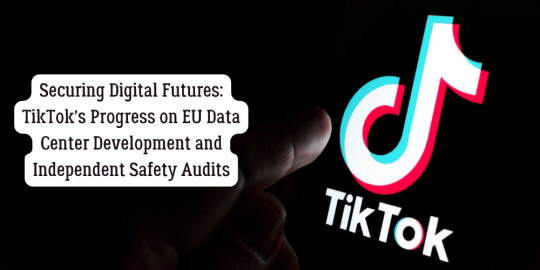
In light of recent commitments to enhance data handling transparency, popular social media platform TikTok has given an update on its strides towards EU data center development and independent security verification.
Launched under the banner of “Project Clover,” TikTok has made considerable progress in aligning its data management strategies with EU regulatory expectations. The project's primary objective focuses on ensuring all EU user data remains within the jurisdiction's confines, eliminating the need for data transfer to Chinese servers, a practice viewed with skepticism by many regulators. To meet these guidelines, TikTok is also integrating independent third-party audits into its data management processes, bringing an additional layer of oversight and trust to its operations.
The recent update reveals momentum gathering around TikTok's first data center in Dublin. The data center is now fully functional after a series of unexpected construction delays. With two additional data centers in Norway and Ireland currently under construction, TikTok's commitment to increased data security within the EU is evident. Ensuring E.U. user data remains within the jurisdiction eliminates a significant operating concern and simultaneously mitigates potential risks associated with foreign data access.
Not only is data localization a key element in TikTok's strategy but independent oversight of data management processes has also been introduced. NCC Group, a renowned European security company, has been brought on board to provide third-party oversight on TikTok's data security measures. The partnership's scope includes continuous security assessments on various fronts – from data centers and secure gateways to the TikTok app. With real-time monitoring of data flow, NCC Group aims to promptly identify and respond to any suspicious access attempts, thereby bolstering TikTok's data security framework.
Among a myriad of concerns faced by social media platforms, data security is paramount. Should TikTok's measures effectively address these concerns, the prospect of continued growth and acceptance is promising. However, lingering questions on its separation from the CCP exert pressure on the effectiveness of these measures in easing regulator apprehensions. But regardless, doing nothing is not an option; the stakes in potential global revenue are too high. Observingly, TikTok’s moves reflect its considerable efforts to assuage not only public concerns but those of stringent regulatory bodies, ensuring its vibrant digital ecosystem continues to thrive securely.